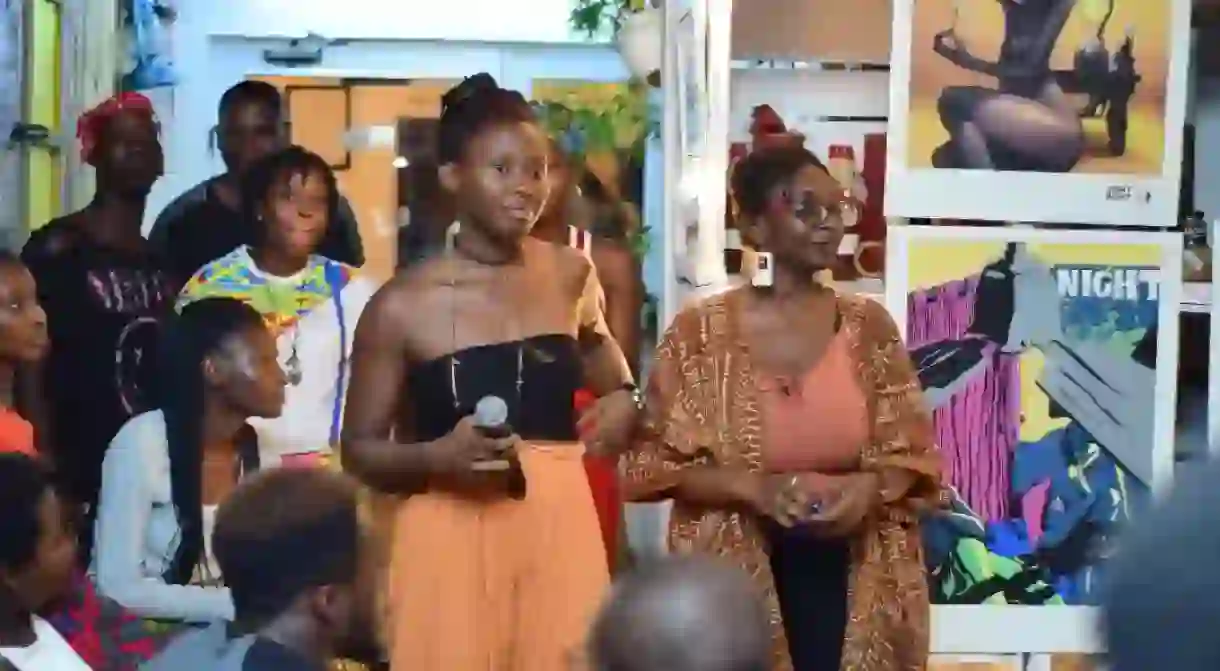These Drama Queens Are Encouraging Ghanaians to Speak up

Drama Queens is a nonprofit sex-ed and theatre project that seeks to challenge the status quo and representation of African queer and straight women. This year, the team is using workshops, talk sessions, music and theatre to open discussions about queer life in Ghana. Founder Akosua Hanson tells us more.
What inspired you to start this impactful project merging theatre, open dialogue and activism?
Drama Queens started with our sex education workshops in 2016. It was after the alleged Kwasi Kyei Darkwa (KKD) rape case came to light. There was a lot of victim blaming and I was interested in the language around it. Our first workshop was at Tema International School. Right after that I went to the Mandela Washington Fellowship, where I decided to merge my love for theatre with my activism.

We launched in January 2017 with the theme, ‘Sex, Rage and Justice,’ and the event Monologues. Our play Until Someone Wakes Up documented people’s real life stories of rape and abuse. This cuts across heterosexual and homosexual relationships. Our last play for the year 2017 was The Seamstress of St. Francis Street; a Mario Farwell play.
Could you tell us more about stereotyping and how it goes to stir rape culture?
Stereotyping does a lot of contribution to rape culture. Stereotyping renders the woman a sexual object without a voice.
Since the role of a creative is to stimulate critical thinking, how do we use art to disrupt stereotyping?
Stereotyping is based on ideas, and art deals directly with issues and how to think about the world and people. As such, it is very important that an artist, a film maker or musician becomes critical about the content they put out. ‘Rapey’ joke music, for instance, can go to normalize rape and abuse.

In the 1970s, there were over 200 active drama troupes in Ghana, but there’s been a critical decline. It’s impressive to see Drama Queens impact the industry.
Our society since independence has been geared away from making art as important. Our parents and leaders who decide where the national cake goes, give little attention to art. We workshoped 500 people last year and 150 this year already. With issues like victim blaming with regards to clothes, we’ve been part of that conversation to change mindsets.
Theatre is a reflection of life. How do we empower Ghanaian women via performance interventions?
By staging performances that encourage women to speak out. Having women in theatre productions, that are not just complimentary roles or background roles. If the artist cares about the society, they will show a well-rounded view of their society.

Are there any efforts via law or government policies in the direction of lubricating your advocacy efforts?
We wrote emails to the Ministry of Gender. It shouldn’t be the government alone. Citizen activism is important. There should be mainstream sex education in high schools and university. Canada has mainstreamed consent as part of their curriculum in schools. In our Ghanaian systems, sex education itself needs to be revolutionized.
What are the responses and challenges to your educative and informative work?
Our work is not one which goes to write petitions, but one which goes to change minds. That’s the biggest challenge because the revolution actually starts in the mind. Our responses have been good, varied and bad. 2018 is Drama Queens’ LGBT year. Our theme is ‘Just Like Us’, inspired by Eric Gyamfi‘s photo exhibition. We are going to be having a play in May documenting through performance, the experiences of love, pleasure, pain and trauma. Since homophobia is a mind thing, we will share on how our notions about LGBT are problematic and programmed.













